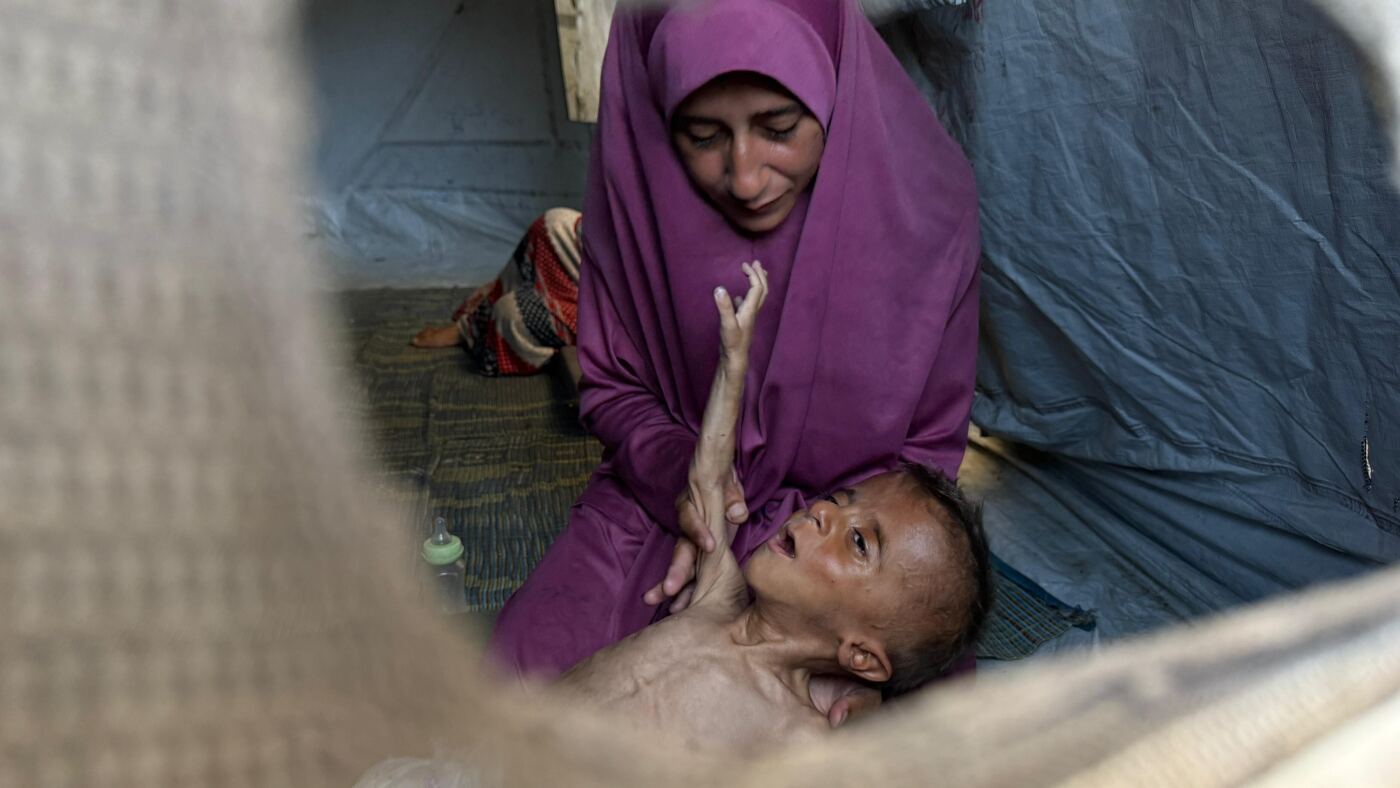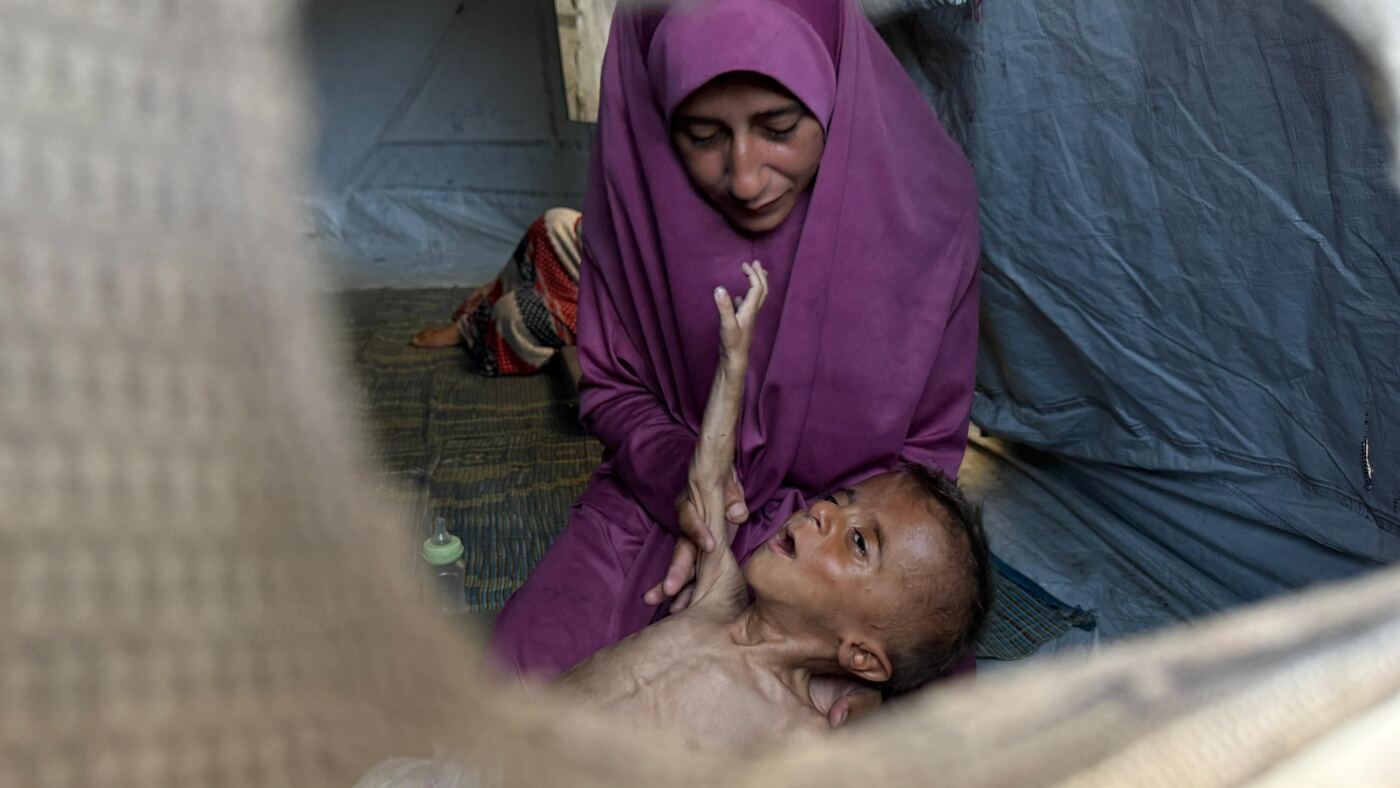The Human Cost of Conflict: Mohammad Al-Motawaq’s Story
A Child’s Cry in the Shadows of War
The world often turns a blind eye to the silent screams of children caught in the crossfire of conflict. Mohammad Al-Motawaq, an 18-month-old boy from Gaza, is one such voice, his cries echoing through the rubble and despair of a region that has known little but suffering. His story is not just about one child; it is a mirror reflecting the collective trauma of an entire generation. At a weight of less than 10 pounds, Mohammad is a living testament to the devastating impact of prolonged conflict, economic collapse, and systemic neglect. His condition is not an anomaly but a symptom of a much larger crisis that demands urgent attention and action.
The Anatomy of a Crisis: Why Mohammad Starves
Mohammad’s starvation is not a simple matter of food scarcity. It is the result of a confluence of factors that have created a perfect storm of malnutrition in Gaza. Understanding these factors is crucial to addressing the root causes of the crisis.
The Blockade: A Stranglehold on Survival
The blockade imposed on Gaza has created an artificial scarcity of essential goods, including food. While aid may be available just outside the border, the process of getting it to those who need it is often hindered by bureaucratic red tape, security concerns, and logistical challenges. This restricted access to food has left many families struggling to meet even the most basic nutritional needs of their children. The blockade is not just a political tool; it is a life-and-death issue for families like Mohammad’s.
Economic Collapse: The Invisible Enemy
Years of conflict and blockade have devastated Gaza’s economy, leaving many families unable to afford basic necessities. Unemployment rates are sky-high, and poverty is widespread. The economic collapse has created a vicious cycle of deprivation, where families are trapped in a state of perpetual hunger. The inability to afford food is not a matter of choice but a harsh reality imposed by circumstances beyond their control.
Damaged Infrastructure: The Silent Killer
Bombardment and neglect have damaged critical infrastructure in Gaza, including water and sanitation systems. This has led to the spread of disease, further exacerbating malnutrition. Children like Mohammad are more susceptible to infections that hinder nutrient absorption, creating a deadly feedback loop. The lack of clean water and proper sanitation is not just a public health issue; it is a matter of life and death for vulnerable children.
Overcrowded Living Conditions: A Breeding Ground for Disease
Many families in Gaza live in overcrowded refugee camps or damaged buildings. These conditions increase the risk of infectious diseases and make it difficult to maintain proper hygiene. The lack of adequate living space and sanitation facilities creates an environment where diseases thrive, further compromising the health of already malnourished children.
Psychological Trauma: The Invisible Wound
The constant exposure to violence and instability takes a heavy toll on the mental health of both children and parents. Psychological trauma can lead to feeding difficulties in children and depression in parents, impacting their ability to care for their children properly. The invisible wounds of trauma are just as devastating as the physical ones, and they require urgent attention and support.
The Long-Term Consequences: A Generation at Risk
The immediate consequences of malnutrition are devastating, but the long-term effects can be even more profound. Chronic malnutrition during early childhood can have lifelong implications, shaping the future of an entire generation.
Stunted Growth: A Physical Manifestation of Deprivation
Malnutrition can permanently stunt physical growth, leaving children shorter and weaker than their peers. This physical manifestation of deprivation is not just a cosmetic issue; it is a marker of a life lived in the shadows of conflict and neglect. The stunted growth of children like Mohammad is a stark reminder of the human cost of prolonged crisis.
Cognitive Impairment: The Silent Theft of Potential
The brain is particularly vulnerable to the effects of malnutrition during the first few years of life. Malnutrition can impair cognitive development, leading to learning disabilities and reduced intellectual capacity. The silent theft of potential is one of the most tragic consequences of the crisis in Gaza. Children like Mohammad are not just starving; they are being robbed of their future.
Weakened Immune System: A Life on the Edge
Malnourished children are more susceptible to infections and diseases, making them more likely to die from preventable illnesses. A weakened immune system is a constant companion for children like Mohammad, who live on the edge of survival. The constant threat of illness is a daily reality that underscores the urgency of addressing the crisis.
Increased Risk of Chronic Diseases: A Lifetime of Health Challenges
Studies have shown that malnutrition in early childhood can increase the risk of developing chronic diseases, such as diabetes and heart disease, later in life. The long-term health challenges faced by malnourished children are a stark reminder of the lasting impact of the crisis in Gaza. The seeds of future health problems are sown in the early years of life, and the consequences are often irreversible.
Beyond Mohammad: A Call to Action
While Mohammad’s story is undeniably tragic, it is also a call to action. There are glimmers of hope amidst the despair, driven by the dedication of aid workers, medical professionals, and ordinary people who are working tirelessly to alleviate suffering. However, their efforts are often hampered by the ongoing conflict and restrictions on access. Addressing the crisis in Gaza requires a multifaceted approach that includes:
Ensuring Unfettered Access to Humanitarian Aid
All parties must ensure that humanitarian organizations have safe and unimpeded access to Gaza to deliver food, medicine, and other essential supplies. The blockade must not be allowed to stand in the way of saving lives. The international community has a moral responsibility to ensure that aid reaches those who need it most.
Addressing the Root Causes of Food Insecurity
Long-term solutions must address the underlying causes of food insecurity, including poverty, unemployment, and damaged infrastructure. This requires a sustained commitment to economic development and reconstruction. The crisis in Gaza cannot be solved with short-term fixes; it demands a comprehensive and sustained effort to rebuild the region and its economy.
Providing Mental Health Support
The psychological trauma of living in a conflict zone can have a devastating impact on children and families. Mental health services are essential to help them cope with their experiences and build resilience. The invisible wounds of trauma must be addressed with the same urgency as the physical ones.
Protecting Children from Violence
All parties must take steps to protect children from violence and ensure that they have access to education and other essential services. The protection of children must be a priority in any effort to address the crisis in Gaza. Their future depends on it.
A Moral Imperative: The World’s Responsibility
The story of Mohammad Al-Motawaq is a reminder that behind the headlines and political debates, there are real people struggling to survive. As global citizens, we have a moral imperative to act. We must demand that our leaders take concrete steps to address the crisis in Gaza and ensure that children like Mohammad have the opportunity to live healthy and fulfilling lives. The world cannot afford to turn a blind eye to the suffering of children. Their cries for help must be heard, and their plight must be addressed with urgency and compassion.
A Plea for Humanity
Mohammad Al-Motawaq’s name should not become just another statistic. It should serve as a constant reminder of the human cost of conflict and the urgent need for a just and lasting solution. His story is a plea for humanity, a call to break the cycle of violence and deprivation, and to create a future where all children can thrive, regardless of where they are born. Let us not allow his suffering to be in vain. Let his story inspire us to work towards a world where no child has to starve. The future of Gaza’s children depends on our collective action and compassion. It is time to answer their call.








